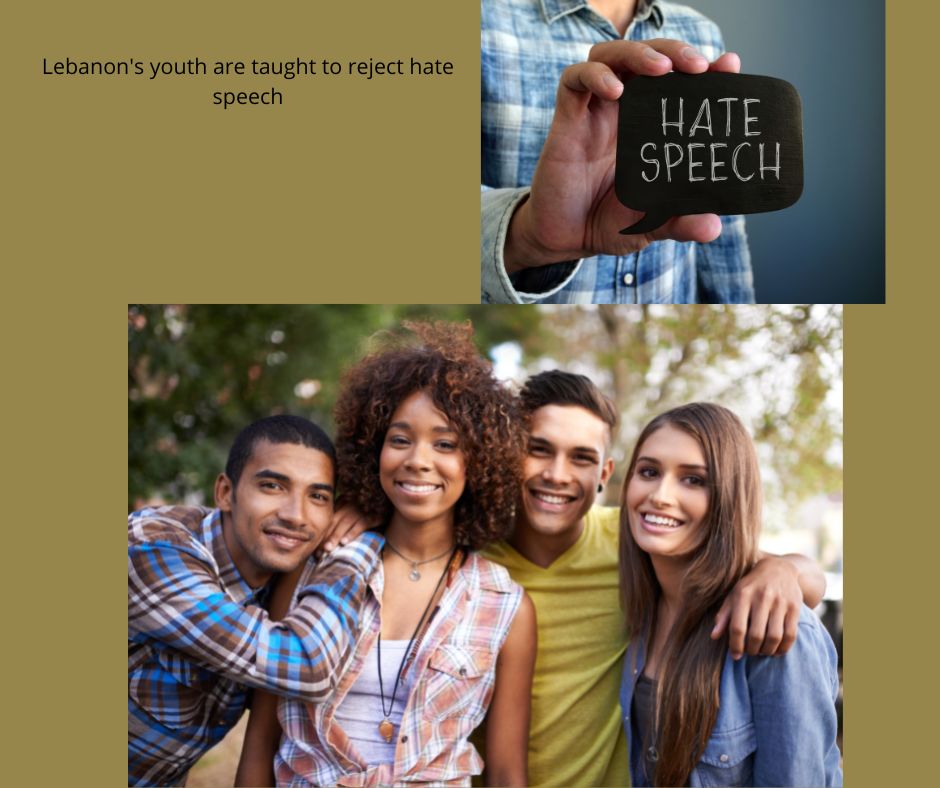
Source: AUN News
Dima El-Awar, age 21, presents himself to the camera with assurance and comfort. Along with being a skilled public speaker—a talent every journalist aspires to—Dima is committed to encouraging truthful communication. Ms. El-Awar, who comes from the small Mount Lebanon village of Falougha, was hesitant to pursue her dream of becoming a journalist because she believed she was unqualified for the position.
“When I was a young girl, I frequently heard derogatory remarks about my personality and sense of style. Some people complained that I was too loud, while others claimed that because I did not dress like other ladies, I did not meet the beauty criteria of public figures and TV personalities. I sometimes felt resentful when I heard such remarks, but these days I smile and respond positively in an effort toto improve other people’s perspectives, says Ms. El-Awar.
Instead of studying journalism, she chose to study Chinese translation before making peace with these disparaging remarks. She eventually switched to studying journalism after realizing she shouldn’t have abandoned her passion due to others’ opinions. “I chose to get over other people’s ideas and to listen to my inner voice,” Ms. El-Awar says with a smile. “I didn’t want to regret not pursuing my passion when I’m old.”
Using constructive speech to dispel rumors
Ms. El-Awar heard about other people’s experiences with hate speech in a training session for youth to combat hate speech and misinformation as part of the “Youth Countering Hate Speech and Misinformation” project, organized by UN Lebanon through the UN Educational, Scientific and Cultural Organization (UNESCO).
Ms. El-Awar gained knowledge on the various types of hate speech, its effects on individuals, and strategies for handling it during the session. “I started embracing myself when I realised that hate speech expresses the other person’s problems rather than mine. I also began to recognize the beauty in everyone and accept people for who they are, she adds.
She could see from the training that switching to journalism was the proper choice since “newspapers can oppose hate speech and disinformation via positive speech and accuracy.” She was made more conscious of the significance of stopping bullying, destructive criticism, and marginalizationtion of people based on their identities, and the need to oppose hate speech.
The young people’s strong voice
UN Lebanon provided training on media and information literacy, access to information, preventing hate speech, and dispelling disinformation to 15 young people from various regions and universities in Lebanon. The young participants in this project created 12 social media episodes on hate speech and false information after receiving technical training.
Ms. El-Awar has always been committed to making a positive difference in her community. For the past seven years, she has volunteered as a paramedic and emergency medical services volunteer with the Lebanese Red Cross in Falougha. “I can get to know individuals better by volunteering. I can demonstrate unity to individuals of all ages, genders, and socioeconomic groups by volunteering, she boasts.
Ms. El-Awar is eager to combat hate speech in her capacity as a young person and potential journalist because she values giving back to the community. “Young people can be crucial in the fight against hate speech since they represent the next generation. They are resilient, accept variety, and can alter perspectives, she adds. Ms. El-Awar is now more confident to appear in front of the camera and highlight Lebanon’s beauty since she overcome the influence of hate speech.
Analysis by : Advocacy Unified Network
